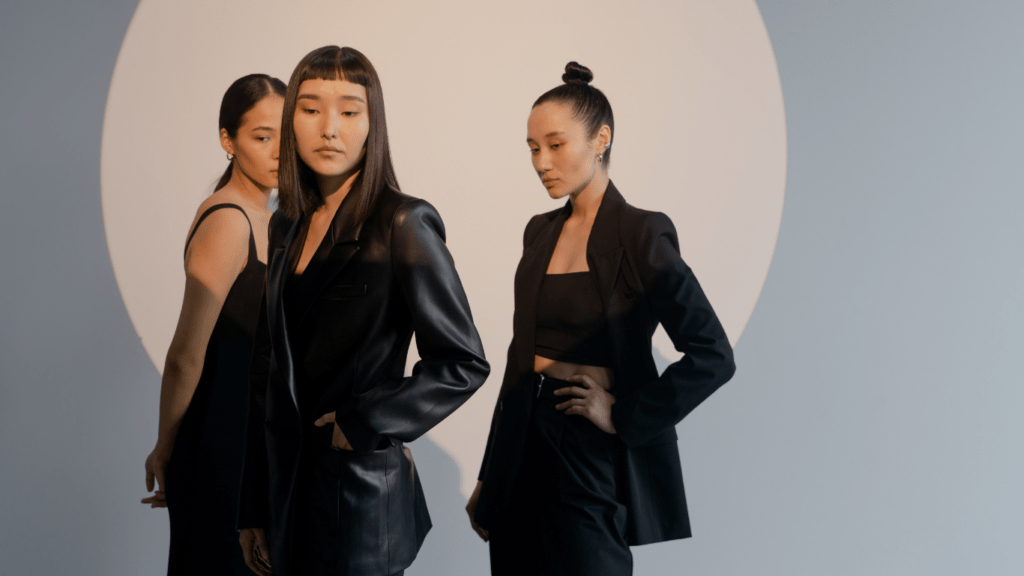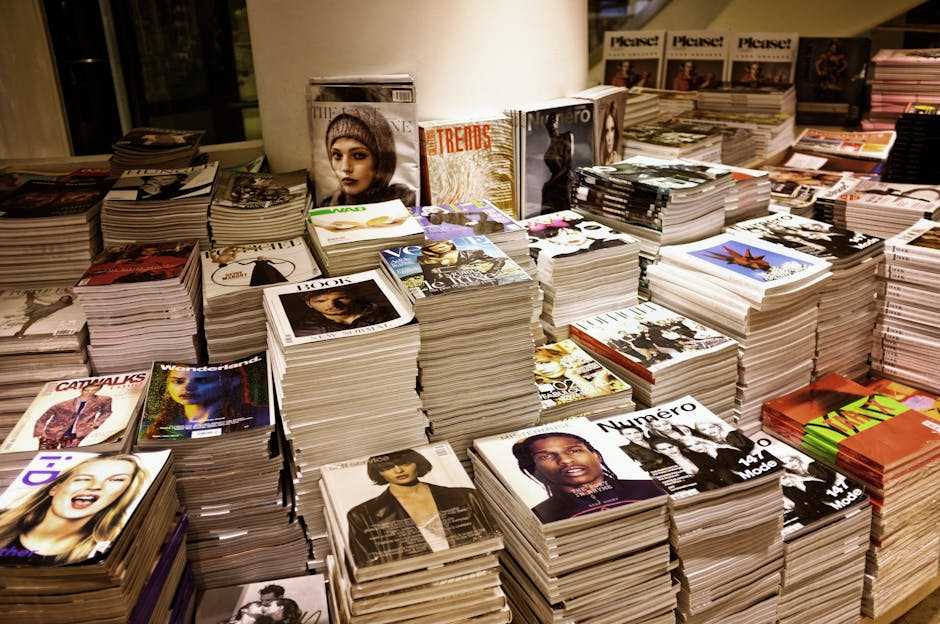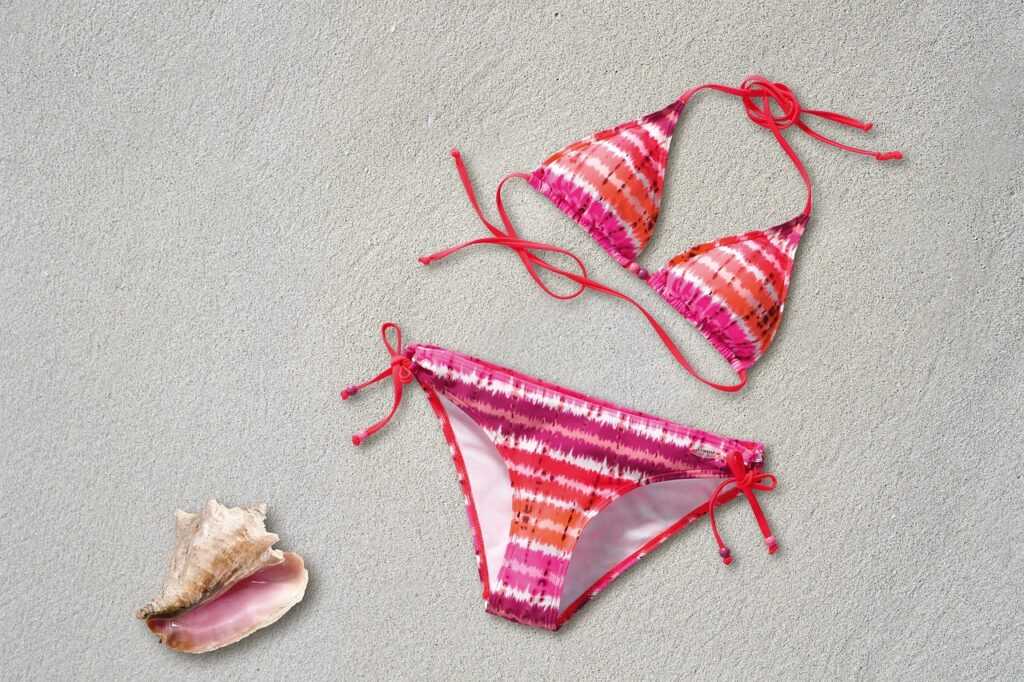Defining Fashion Icons
Fashion icons shape and redefine the style landscape. These individuals possess a distinct sense of fashion that transcends time. Icons leave a lasting impact on clothing trends by pushing boundaries and setting new standards.
Characteristics of Fashion Icons
- Innovative Style: True icons introduce novel looks. For example, Audrey Hepburn’s little black dress in Breakfast at Tiffany’s became a timeless fashion staple.
- Influence on Trends: Icons have a profound effect on global fashion trends. David Bowie’s androgynous outfits challenged conventional gender norms in fashion.
- Cultural Impact: They influence various cultural aspects. Madonna popularized the ’80s punk rock style with her bold outfits and accessories.
- Legacy: Their influence endures beyond their era. Coco Chanel’s creation of the Chanel suit still resonates in modern business wear.
Examples of Fashion Icons
- Audrey Hepburn: Known for her elegant simplicity, Hepburn’s style included tailored pieces, ballet flats, and timeless accessories.
- David Bowie: Bowie’s flamboyant and androgynous fashion choices set him apart as a pioneer in pushing the boundaries of gender-specific clothing.
- Madonna: Her constantly evolving style in the ’80s and ’90s made her a trendsetter in music and fashion.
- Coco Chanel: Chanel revolutionized women’s fashion by introducing elements like trousers and blazers, combining comfort and sophistication.
Impact on Modern Style Trends

The influence of these icons is evident in today’s fashion. Current trends often draw from their pioneering styles. Designers continually seek inspiration from the innovative ideas of past icons to create contemporary collections that resonate with today’s audience. The cyclical nature of fashion ensures that the contributions of these trailblazers remain relevant.
Historical Fashion Icons
Historical fashion icons continuously shape and influence today’s style trends. Their groundbreaking contributions leave an enduring legacy that continues to inspire.
Coco Chanel
Coco Chanel revolutionized women’s fashion with her forward-thinking designs. She introduced the concept of casual chic, making it acceptable for women to wear pants, jersey fabrics, and suits. Chanel’s little black dress, introduced in 1926, remains a wardrobe staple. Her influence extends to accessories, particularly the iconic Chanel No. 5 perfume and quilted handbags. Chanel redefined femininity by merging comfort with elegance.
Audrey Hepburn
Audrey Hepburn became synonymous with sophistication and grace. Her role in “Breakfast at Tiffany’s” cemented the little black dress as a timeless piece. Hepburn popularized minimalist fashion, favoring clean lines, simple silhouettes, and ballet flats. Collaborating with designer Givenchy, she set new standards for elegance. Hepburn’s style endures in today’s fashion, reflected in the continued popularity of cropped pants, boat neck tops, and oversized sunglasses.
David Bowie
David Bowie transformed fashion with his eclectic androgynous style. His various personas, like Ziggy Stardust and Aladdin Sane, broke gender norms and influenced rock fashion. Bowie’s bold use of color, patterns, and makeup inspired designers and musicians alike. His legacy can be seen in contemporary trends embracing gender fluidity and bold, experimental aesthetics. Bowie’s influence reaches beyond music, leaving a lasting impact on fashion and culture.
Contemporary Fashion Icons
Contemporary fashion icons continue to shape today’s style landscape with their unique sense of fashion and bold choices. They inspire new trends and celebrate individuality.
Rihanna
Rihanna redefines modern fashion with her fearless approach to style. She blends high fashion with streetwear effortlessly, creating iconic looks that leave a lasting impression. Her Fenty brand challenges industry norms, promoting inclusivity and diversity. For example, Fenty Beauty offers a wide range of shades for all skin tones, while her Savage X Fenty lingerie line embraces body positivity with diverse models and size ranges. Rihanna’s red carpet appearances are always highly anticipated, showcasing her ability to push fashion boundaries and set new trends.
Harry Styles
Harry Styles captivates the fashion world with his gender-fluid ensembles and eclectic taste. He mixes masculine and feminine elements seamlessly, making bold statements with his wardrobe choices. Styles often dons high-waisted pants, ruffled shirts, and glittery ensembles, embracing a vintage-inspired yet modern aesthetic. His collaboration with Gucci underscores his influence, bringing a retro edge to contemporary fashion. Styles’ look challenges traditional gender norms and inspires many to explore non-conformist styles. On stage and off, he constantly reinvents his image, contributing to his status as a fashion icon.
Zendaya
Zendaya embodies versatility and elegance in her fashion choices. She shifts effortlessly from street style to haute couture, demonstrating a broad sartorial range. Known for her risk-taking on red carpets, Zendaya often collaborates with stylist Law Roach to create show-stopping, trendsetting outfits. Her 2019 Met Gala look, inspired by Cinderella, and her ventures into gender-neutral fashion further highlight her innovative style. Zendaya’s influence extends beyond clothing; she’s an advocate for diversity and inclusion in fashion, ensuring her impact resonates across various demographics.
Iconic Signature Styles
Fashion icons leave enduring legacies through their signature styles, influencing today’s trends in meaningful ways. Here, I delve into some of the most iconic styles that continue to impact modern fashion.
Chanel’s Little Black Dress
Coco Chanel’s little black dress (LBD) premiered in 1926, redefining elegance with its minimalist design. Chanel’s LBD offered a versatile garment that could be dressed up or down, making it a staple in every wardrobe. This design remains a go-to piece for cocktail parties, professional settings, and casual outings alike. Chanel’s influence is evident in modern variations of the LBD, showcasing its timeless allure and adaptability.
Hepburn’s Timeless Elegance
Audrey Hepburn popularized a sophisticated, minimalist approach to fashion that endures today. Her collaboration with designer Hubert de Givenchy produced iconic looks like the black dress in “Breakfast at Tiffany’s.” Hepburn favored clean lines and simple silhouettes, a style seen in today’s minimalistic trends. Her emphasis on timeless pieces over transient fads continues to resonate, encouraging a refined, yet accessible approach to fashion.
Bowie’s Androgynous Flair
David Bowie’s eclectic androgynous style broke gender norms and set the stage for today’s gender-fluid fashion. Bowie’s outfits, from Ziggy Stardust’s flamboyant get-ups to the tailored suits of his Berlin era, challenged traditional fashion boundaries. These ensembles inspire contemporary trends that favor bold, boundary-pushing aesthetics and embrace fluidity. Today’s fashion often reflects Bowie’s fearless approach, emphasizing individuality over conformity.
The Evolution of Fashion Trends
Fashion trends have significantly evolved over the decades, influenced by iconic figures and cultural shifts. Examining these influences reveals how past styles shape today’s sartorial choices.
Influence of Historical Icons
Historical icons laid the foundation for modern fashion. Coco Chanel revolutionized women’s wear with her casual, yet chic designs, making items like the little black dress (LBD) and pearls timeless. Chanel said, “Simplicity is the keynote of all true elegance,” which reflects in today’s minimalistic trends.
Audrey Hepburn’s style, characterized by clean lines and simplicity, remains widely admired. Her collaboration with designer Hubert de Givenchy popularized looks that blend elegance with functionality. Even now, elements from Hepburn’s wardrobe appear in contemporary collections, demonstrating her lasting influence.
David Bowie broke conventional boundaries with his androgynous styles, paving the way for gender-neutral fashion. Bowie’s eclectic outfits in the 1970s and 1980s encouraged self-expression through clothing, a concept that deeply resonates in current trends embracing gender fluidity and uniqueness.
Modern Interpretations
Modern fashion interprets historical influences in innovative ways. Designers continually reference icons like Chanel, Hepburn, and Bowie in their collections. For instance, the LBD remains a wardrobe essential, revamped each season with modern twists in materials and silhouettes.
Rihanna exemplifies the seamless blend of high fashion and streetwear, a trend foreseen by fashion pioneers. Her Fenty brand promotes inclusivity, mirroring Chanel’s revolutionary approach that challenged norms.
Harry Styles, known for his gender-fluid ensembles, channels Bowie’s daring spirit. Styles’ wardrobe often includes flamboyant patterns and shapes, encouraging a modern fashion scene where breaking gender norms is not just accepted but celebrated.
Zendaya’s versatile and elegant looks showcase how historical styles can adapt to contemporary aesthetics. Her red carpet appearances often feature bold choices that push fashion boundaries while paying homage to classic influences.
Fashion continues to evolve by drawing inspiration from the past and merging it with new ideas, resulting in a dynamic and inclusive style landscape.
Impact on Modern Fashion Industry
Fashion icons shape today’s industry through their timeless styles and bold innovations, influencing designers, fashion weeks, and runway collections.
Designers Inspired by Icons
Modern designers often look to historical legends for inspiration when creating new collections. Karl Lagerfeld, for example, channeled Coco Chanel’s revolutionary designs when he helmed the brand, reimagining the little black dress and tweed suits with contemporary twists. Alexander McQueen drew from David Bowie’s eclectic style, incorporating androgynous elements in his avant-garde pieces. Designers like Givenchy continue to honor Audrey Hepburn’s elegant minimalism by blending clean lines and sophisticated silhouettes into modern collections. These creators anchor their work in the past while pushing fashion boundaries forward.
Fashion Weeks and Iconic Tributes
Fashion weeks around the world celebrate these enduring influences by featuring tribute collections that highlight iconic styles. Milan Fashion Week often showcases nods to Versace’s bold prints and powerful aesthetics. Paris Fashion Week honors icons like Chanel with runway shows that reinterpret her classic designs for today’s audience. During New York Fashion Week, the influence of Madonna’s punk rock style can be seen in collections that mix high fashion with edgy streetwear. These events not only pay homage to the past but also set the stage for future trends, ensuring that the legacy of fashion icons remains embedded in the industry’s evolution.




